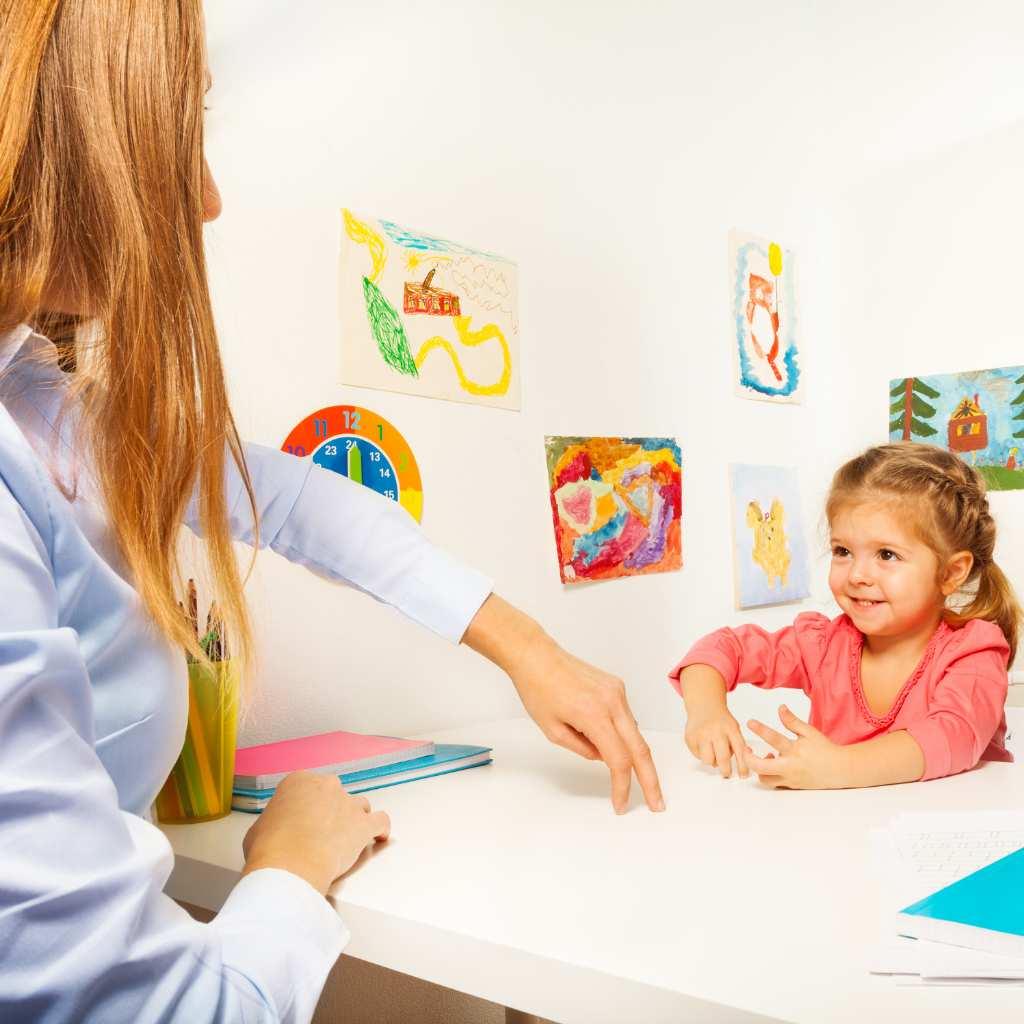Table of Contents
What are self-care skills for autism?
For many families navigating an autism diagnosis, one of the most pressing questions is how to support their child’s ability to perform everyday tasks, including self-care skills, like brushing teeth, dressing, bathing, and managing hygiene, which are foundational to independence.
The journey of teaching self-care skills to children with autism requires understanding their specific needs, sensory preferences, and learning styles. Unlike neurotypical children who may naturally pick up these skills through observation and repetition, children with autism often benefit from structured, systematic approaches that break down complex tasks into manageable components.
Learn more about effective strategies for teaching self-care skills to children with autism by reading this blog by ABA Centers of Pennsylvania. We will explore practical tips that can empower families on their journey toward fostering independence in their children.
Understanding Self-Care Skills in Autism
Self-care skills encompass the fundamental abilities individuals need to maintain their personal health, hygiene, and daily functioning, including:
- Personal hygiene: brushing teeth, washing hands, bathing
- Dressing and undressing: choosing appropriate clothing, buttoning, and zipping
- Toileting: recognizing the need to use the bathroom, wiping, and handwashing
- Feeding: using utensils, eating independently, cleaning up
- Sleeping routines: understanding bedtime, self-soothing
- Grooming: combing hair, trimming nails
For children with autism, these skills represent more than routine tasks—they serve as building blocks for independence, self-confidence, and social integration.
The International Journal of Nursing Sciences identifies three core components of effective self-care: awareness of personal needs, self-control in managing emotions and actions, and self-reliance in completing tasks independently. These elements take on special significance when considering autism and self-care development.
Why Are Self-Care Skills More Challenging for Children with Autism?
Children with autism may experience several factors that influence their self-care skill development:
- Communication differences: Children with autism may have difficulty understanding verbal instructions or expressing discomfort or needs.
- Sensory sensitivities: The texture of toothpaste, the sound of running water, or the feeling of different fabrics can be overwhelming.
- Motor coordination: Fine motor challenges can make it difficult to hold a toothbrush, fasten buttons, or use utensils.
- Executive functioning difficulties: Children may struggle with sequencing steps, initiating tasks, or transitioning between activities.
- Routine rigidity: Sudden changes in routine or expectations may lead to resistance or anxiety.
These factors can make everyday tasks feel daunting for the child and their caregivers. But with proper support, learning self-care is not only possible but can also be a rewarding journey.
Why Teaching Self-Care Skills Differs for Children with Autism
Traditional parenting approaches that rely heavily on imitation, verbal instruction, and natural consequences may not be sufficient for children with autism. The neurological differences inherent in autism spectrum disorder require more structured, systematic teaching methods that account for sensory sensitivities, communication challenges, and different learning styles.
Children with autism often learn best through repetition, visual supports, and consistent routines. They may need tasks broken into smaller components than typically developing children, with each step explicitly taught and practiced until mastery occurs. The typical trial-and-error learning that happens naturally for other children may cause anxiety and resistance in children with autism.
5 Practical Strategies for Parents and Caregivers

Supporting autism and self-care development at home doesn’t require formal training, just patience, creativity, and a willingness to meet your child where they are.
Creating Structured Learning Environments
Successful self-care instruction requires environmental modifications that support learning and reduce distractions. Bathrooms might need organization systems that keep supplies visible and accessible. Bedrooms benefit from clothing organizations that promote independent selection and dressing.
Implementing Visual Supports
Visual supports accommodate the learning preferences of many children with autism while reducing reliance on auditory processing. Photo sequences showing each step of a routine provide concrete guidance that children can reference independently.
First-then boards help children understand activity sequences and expectations. For example, “First brush teeth, then story time” provides clear motivation for completing self-care tasks.
Social stories can address the social aspects of self-care, explaining why certain behaviors are important and what others expect in various situations.
Establishing Consistent Routines
Predictable routines reduce anxiety and support skill development by providing clear expectations and repeated practice opportunities. Morning and evening routines should follow consistent sequences that children can eventually navigate independently.
Routine flexibility becomes important as children mature and encounter different environments. Teaching adaptations for school bathrooms, overnight stays, or travel situations helps children generalize their skills.
Using Positive Reinforcement Effectively
Effective reinforcement systems acknowledge effort and progress rather than only rewarding perfect performance. Children need encouragement for attempting complex tasks, even when the outcome isn’t ideal.
Natural consequences can provide motivation when children understand the connection between self-care and preferred outcomes. Clean hands may be necessary before snack time, or finishing morning routines can lead to preferred activities.
Teaching Through Modeling and Practice
Demonstration combined with guided practice helps children understand expectations while building muscle memory for complex tasks. Parents might perform routines alongside their children initially, gradually reducing their participation as independence develops.
Peer modeling can be effective when children observe siblings or classmates performing self-care tasks. This social learning provides natural motivation and demonstrates that these skills are essential for everyone.
How ABA Therapy Supports the Development of Self-Care Skills
Applied Behavior Analysis (ABA) is a widely used and evidence-based approach to teaching functional life skills, including self-care skills. ABA therapists work closely with each child to break down complex tasks into small, teachable steps and reinforce progress along the way.
Here’s how ABA can help:
- Task Analysis: ABA therapists divide each self-care task (e.g., brushing teeth) into individual steps and teach them in sequence.
- Prompting and Fading: RBTs use visual, verbal, or physical prompts to guide the child through the task. Over time, these prompts are reduced to encourage independence.

- Positive Reinforcement: Praise, tokens, or other rewards motivate and reinforce successful behaviors.
- Visual Supports: Picture schedules or step-by-step visual guides can help children understand and complete tasks.
- Consistency Across Settings: Skills are practiced in multiple environments (home, clinic, school) to promote generalization.
Family Support at ABA Centers of Pennsylvania
At ABA Centers of Pennsylvania, we understand that each child and family is unique. That’s why we provide personalized ABA therapy plans tailored to support both children and their caregivers on the journey toward family independence. We serve families in Bucks County, Chester County, Delaware County, Montgomery County, Philadelphia, and other areas of Pennsylvania.
Our programs include:
- In-home and center-based ABA therapy for daily living skills
- Parent training sessions to extend learning into the home environment
- Visual supports and social stories to aid with routine tasks
- Collaborative goal setting to match your child’s needs and your family’s priorities
We believe that teaching self-care skills is a shared effort, and we’re here to walk alongside you every step of the way. Call us at (844) 444-7496 or fill out our online form to contact you back.









